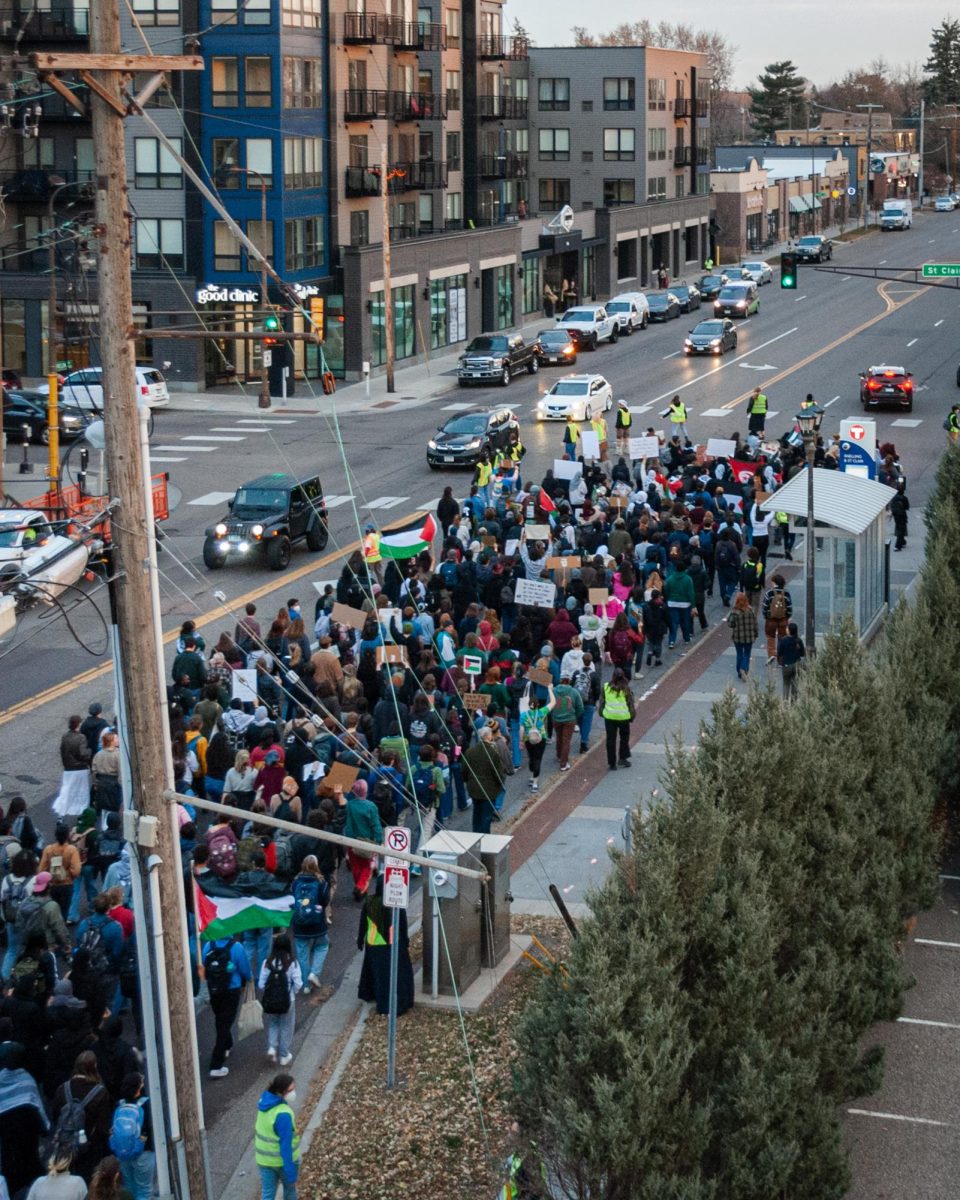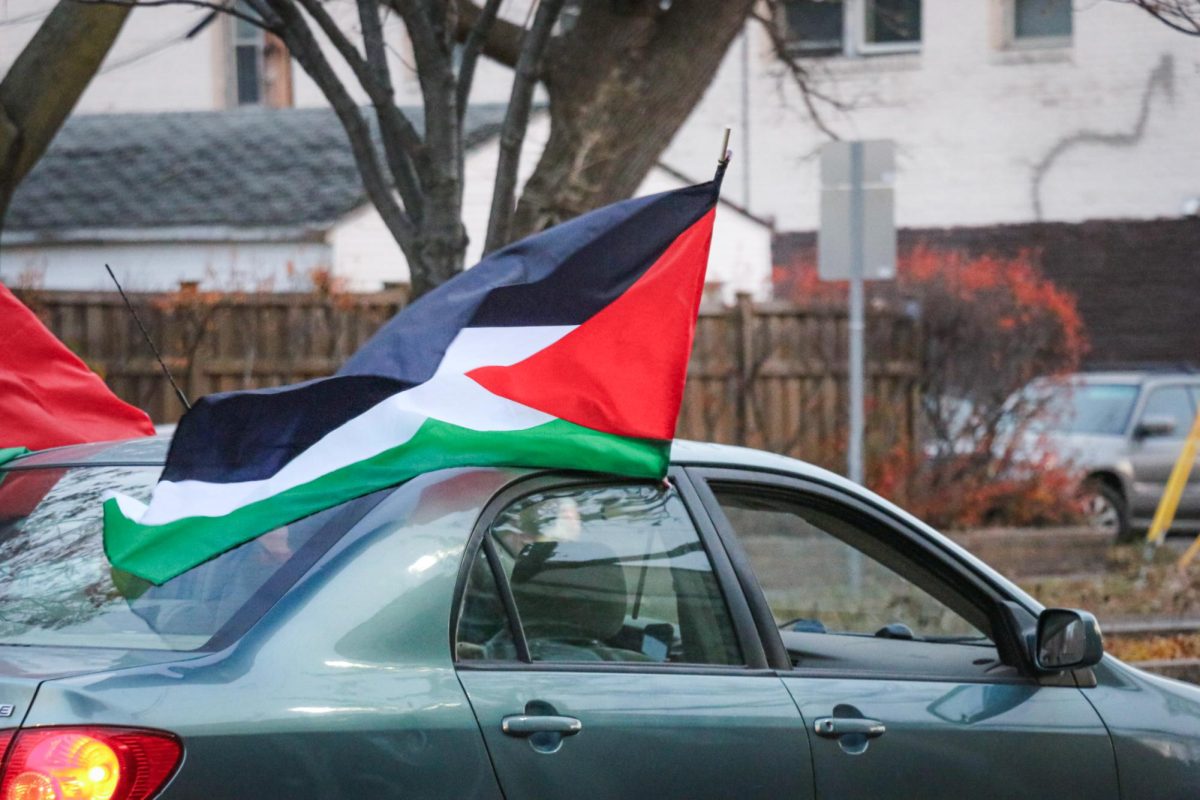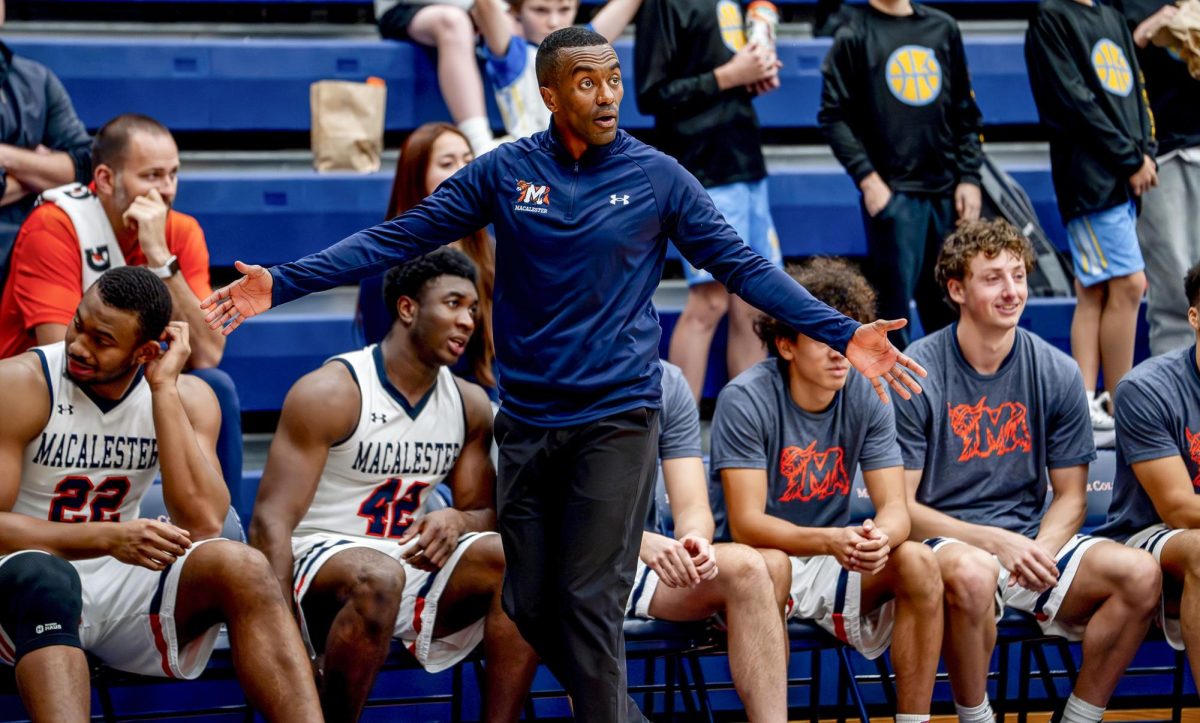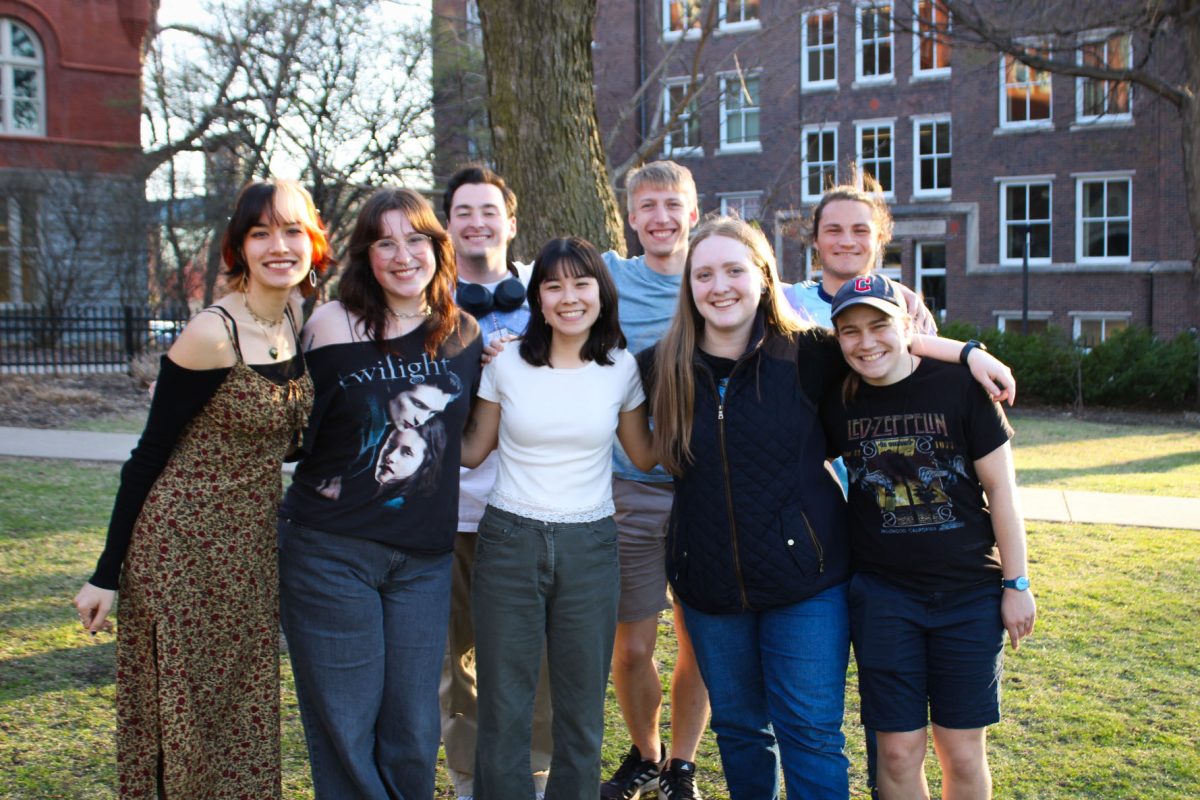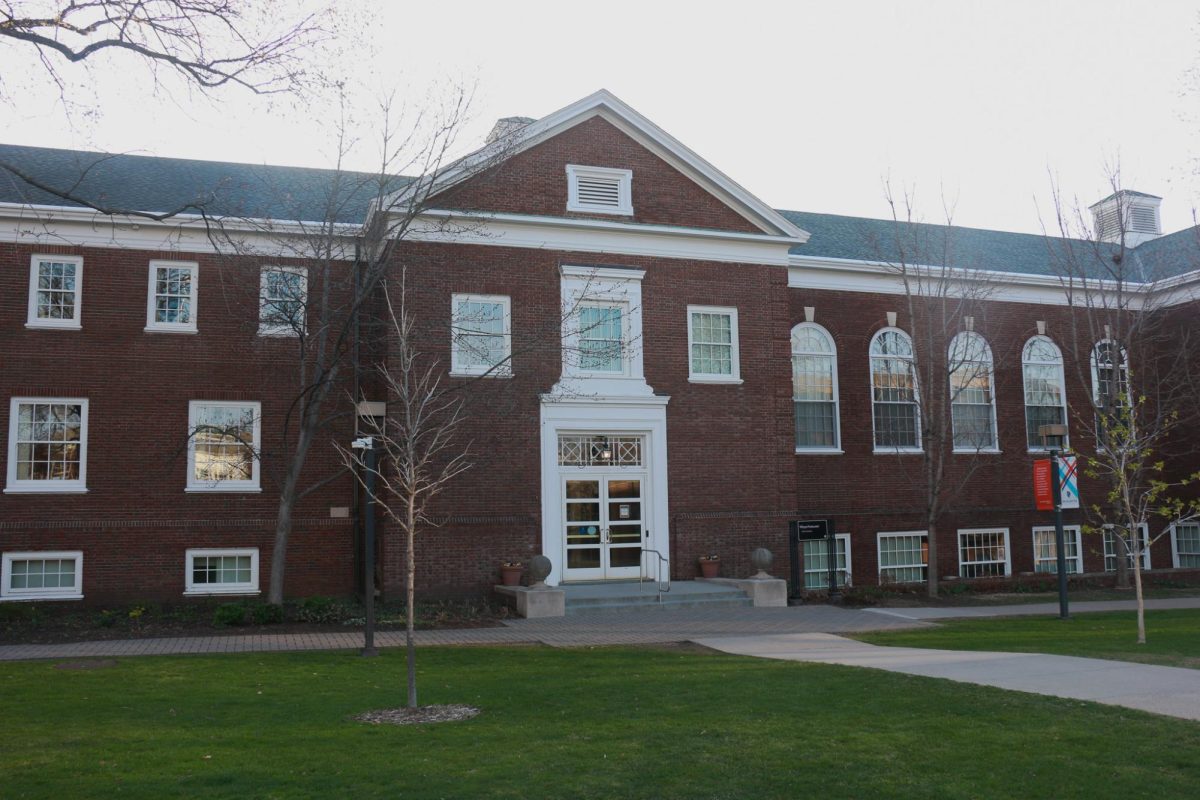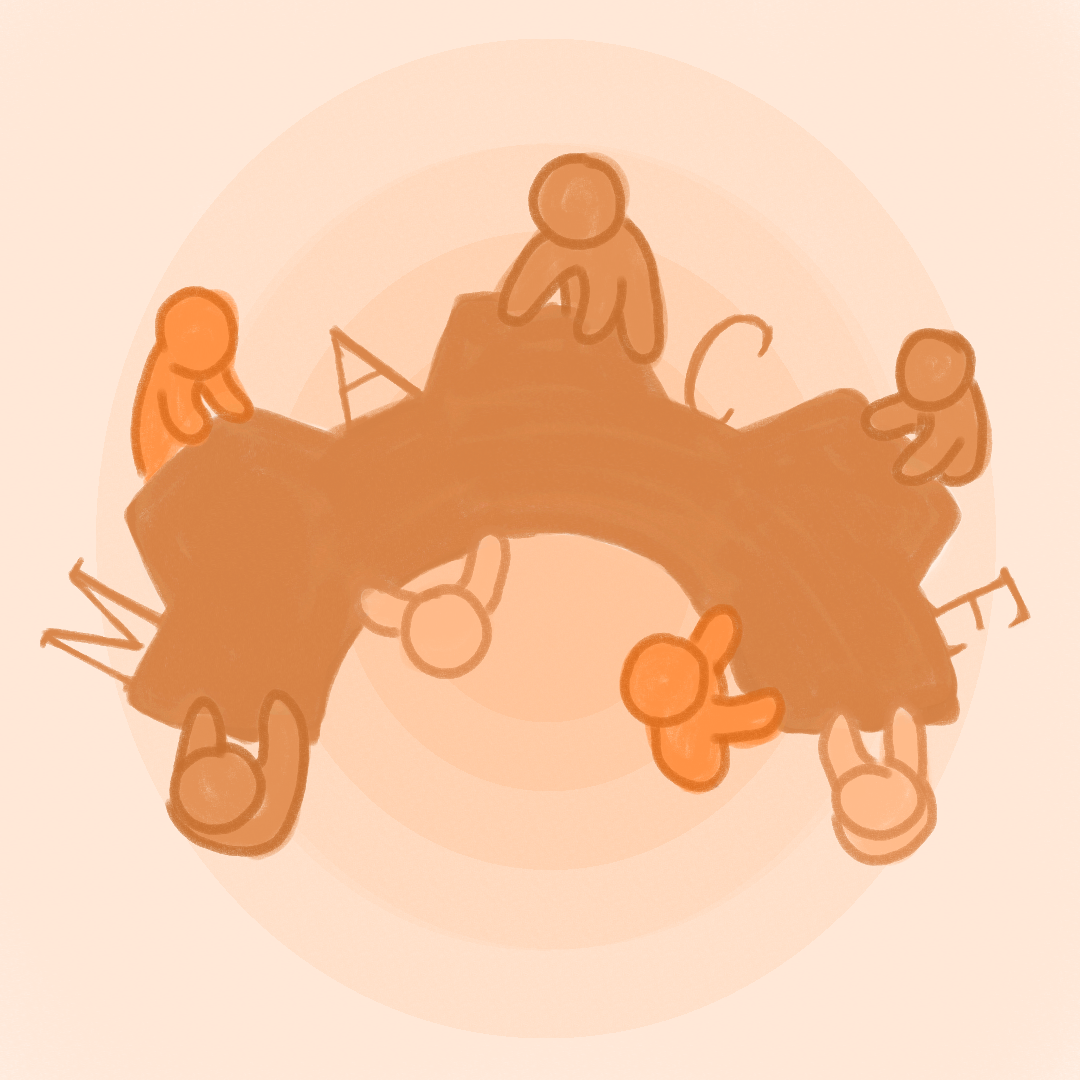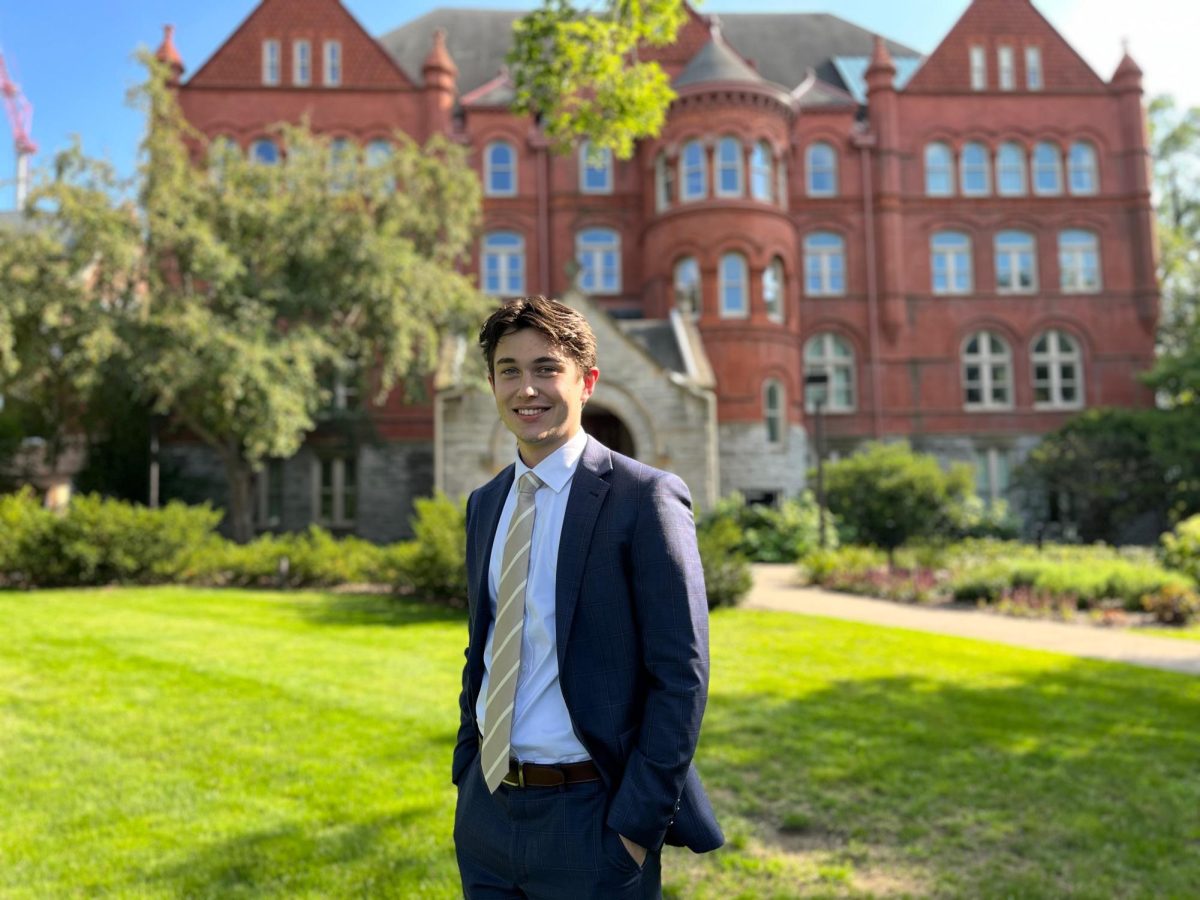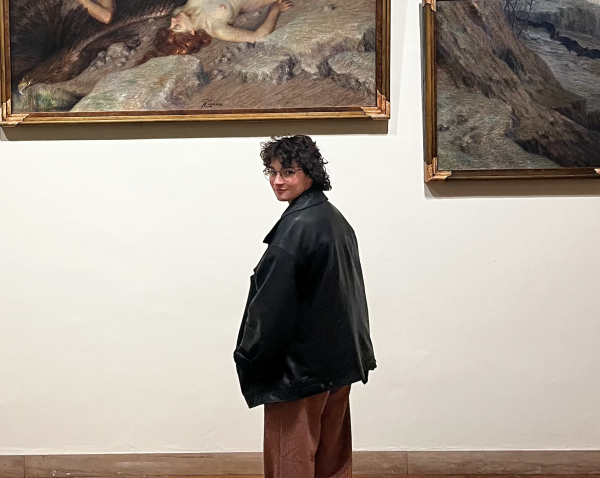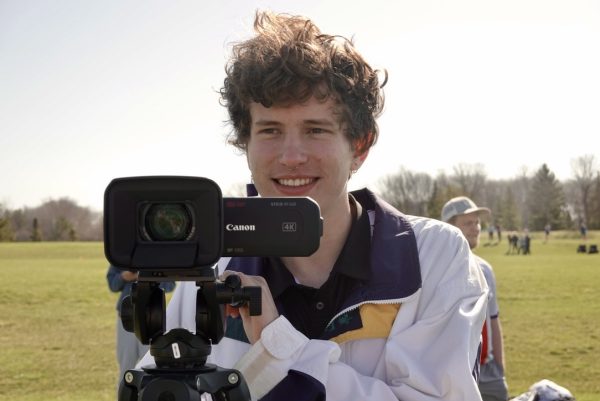On Tuesday, Nov. 14, the Great Lawn filled with voices of students, staff and faculty of Macalester and surrounding colleges in the Twin Cities and across Minnesota in support of a ceasefire in Gaza. As they marched around the Macalester-Groveland neighborhood peacefully but loudly, they made their voices known about a struggle halfway around the world, but one that for many, was all too close to home.
They collectively demanded a response from their respective institutions, and the greater community of higher education, to the Israel-Hamas war, which has resulted in the killing of more than 11,000 Palestinians and more than 1,200 Israelis.
“We are standing here because the people in Gaza couldn’t be here. We are standing here to voice the voices of people who can not reach the impact that they need to get,” a student from Macalester, who has chosen to be represented anonymously due to safety concerns, said before the march.
“It’s very important to me because I am from South Africa but I am also half Palestinian,” explained an anonymous Augsburg University student. “It’s important to me and for my people to be here.”
The Minnesota Anti-War Committee and American Muslims for Palestine (AMP) collaborated with students from Macalester, Augsburg University, Carleton College, the University of Minnesota, St. Catherine University and the University of St. Thomas to plan the cross-university march.
The event brought people in different roles in the Macalester community together, such as Assistant Chaplain for Christian Life Sorrel Hester, who volunteered to be a marshall, ensuring the safety of protesters.
“I see chaplaincy as being present with the joys, the fears [and] the grief that people are living with,” Hester told The Mac Weekly in an interview after the march. “I’m also thinking a lot about the role of chaplaincy in being present with people as they are discovering what their dreams for the world are. I know that Gaza has been on the hearts of many of our students.”
This cross-college protest has not been the only on-campus activism around the Israel-Hamas war in the last weeks around Macalester. The student-led group Mac for Palestine (not a Macalester-sponsored student org) started with a petition on Nov. 2 to end Macalester’s study abroad programs in Israel at Hebrew University of Jerusalem and the University of Haifa. Mac for Palestine shared in an email to The Mac Weekly that the petition was delivered to administration on Nov. 9, with 869 signatures signed in support.
Members of Macalester College Student Government (MCSG) Emma Kopplin ’24, Mikayla Giehler ’24, Reagan Kimzey ’24, Heather Cook ’24, Mariah Loeffler-Kemp ’24, Mathilda Barr ’25, Sylvia Coyle ’25, Ellen Patrickson ’24 and Tristan Niedzielski ’25 drafted a resolution in support of Mac for Palestine’s petition that calls for Macalester to discontinue study away programs in Israel and not discipline students for advocating for ceasefire. The resolution has been added to MCSG’s agenda for their meeting on Nov. 16.
Since the petition’s creation, the group has held various events on campus, one of the largest being a college-wide walkout. On Wednesday, Nov. 8, founding members of Mac for Palestine learned of international organization Shut it Down 4 Palestine’s student walkout scheduled for the following day and began planning a walkout on Thursday, Nov. 9, at 1:30 p.m at Macalester.
On the morning of the walkout, Vice President for Institutional Equity Alina Wong released a statement to the Macalester community titled “Macalester: A Community of Care” offering sympathy to those suffering from violence in Gaza, Israel and Palestine, as well as in Afghanistan, Mexico, Sudan and Maine. This statement was met with contention from some students, faculty and alumni, who argued the statement lacked specificity and did not acknowledge the history of the conflict.
“We want more from the Macalester administration than words of condolences, we want action,” Mac for Palestine wrote in an email to The Mac Weekly.
Wong did not respond to The Mac Weekly’s inquiries about her announcement.
When the time came for the walkout, members of the Macalester community gathered on the Great Lawn, coming from academic buildings, residence halls and locations off-campus to participate. Participants stood for more than an hour, chanting “Free, free Palestine!” “Not another nickel, not another dime, no more money for Israel’s crimes!” and “From the river to the sea, Palestine will be free!” and listening to several speakers, many of whom criticized Wong and Macalester’s senior leadership team for their lack of action and commentary.
The chant “From the river to the sea, Palestine will be free!” currently holds contested meaning, with some interpreting the phrase as a call for overall Palestinian liberation and others understanding it as a denouncement of Israel’s self-determination.
“I’ve heard the opinion (both from administration and faculty members) that people may want to avoid to mention one particular struggle or crisis out of fear that in this way they are neglecting other struggles or crises,” Chair of German Studies & Director of the Critical Theory Program Professor Kiarina Kordela said. “Wouldn’t his reasoning, however, lead us to silence for each and all struggles and crises?”
“Part of how I understand my job as a teacher is to facilitate an opportunity for people to learn about the history of this conflict,” Associate Professor of Women’s, Gender and Sexuality Studies Myrl Beam said. “To place it within a broader context and to understand it as connected to other kinds of violence and systems of power in the world.”
Beam, who attended the walkout and began advocating for Boycott, Divestment, Sanctions (BDS) campaigns when he was in college, added that supporting students is an important step in educating future generations of activists.
“I also feel like part of my job is supporting students who are coming to understand the value of their own voice and the necessity of using their voice in pursuit of justice,” Beam said. “I feel like this is an incredibly galvanizing moment, as it was for me 20 years ago as a college student, because it gives us a window into the scale of US power and violence in the world that we have to reckon with.”
The coalition Mac for Palestine continued its advocacy through a joint protest with Women Against Military Madness (WAMM) on Friday, Nov. 10 at the intersection of Summit and Snelling Ave.
Mac for Palestine is also working on a BDS initiative, looking to end the ways Macalester financially supports Israel. However, Macalester’s investments are currently private, which creates challenges for new generations of students calling for divestment. The group is also working to educate more students on what is happening in the region.
Other events around campus, such as a vigil organized by ¡Adelante!, IfNotNow, Filippinos at Mac (FAM) and Ace Spectrum Identity Collective have been focused on giving students a place to grieve the violence in Gaza. On Nov. 7, a group of students stood beneath the flagpole in the Great Lawn, holding candles to represent the lives lost in both the Israel-Hamas war and the years of conflict in the region predating the war.
A board member of ¡Adelante!, who wishes to remain anonymous, shared that organizers expected about 25 people, but were surprised when an estimated 150 showed up. For the board member, the event was an important act of solidarity among a diverse group of organizers and students, which brought a greater sense of connection.
“Community activism is a political activity in itself,” the student said. “But the reason why people do community work that uplifts a group of individuals or moves people towards a sort of political cause does not come from abstract theory that comes from academia. It’s the other way around. It comes from a need for human connection. What is more human than emotions and being able to hold each other in those tender moments where maybe things are not so politically clear or rational?”

